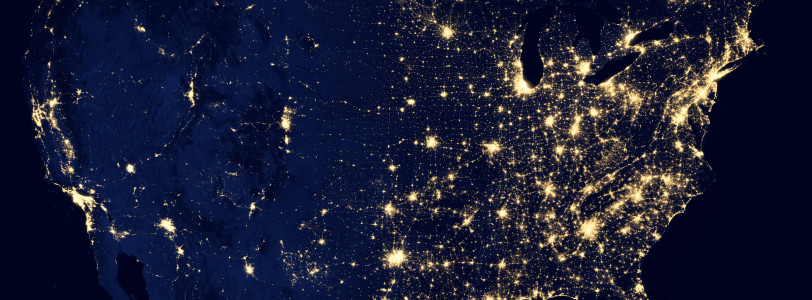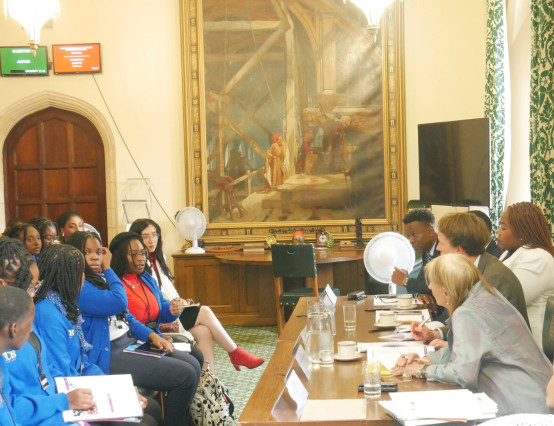Dear G7 leaders,
As you prepare for May’s G7 summit, fly your private jets into Hiroshima, and discuss the varying issues for each member state, I’m asking you to consider a topic rarely spoken about: Internet poverty. It’s not as obvious as other types of poverty, but it can be equally, if not more, problematic.
The internet is the decisive technology of the Information Age. Yet, in England, 1 in 5 households had no access to the internet throughout the pandemic. That includes schoolchildren without access to education when schools closed, vulnerable adults who didn’t have access to the latest Covid-19 news and updates, jobseekers unable to apply for jobs online, and university students lacking access to their courses and had to drop out as a result — leaving them behind in an advancing job market which often requires degrees.
There has been a growing disparity in academics, qualifications and skills between those with internet access and those without. Now, we are seeing the tragic outcome of that. The gap between rich and poor students aged 16 to 19 was previously narrowing, but “completely reversed” during the pandemic. Unlike the mask mandates, this hasn’t gone away.
Even the founder of the Internet, Tim Berners-Lee agreed, stating that the chance to “reimagine our world and create something better” in a post-Covid era must be channelled into providing internet access to those aged 15-24. This is a global issue. Berners-Lee acknowledged that worldwide, two-thirds of young people have no internet access at all. Many more lack the data, devices, and reliable connections they need to make the most of the web. In fact, only the top third of under-25s have a home internet connection, leaving 2.2 billion young people without the stable access needed to learn online.
As such, Berner-lees estimates that an investment of US$428 billion over the next decade is required to provide young people around the globe with a quality internet connection. This would help even the playing field for young people growing up in a divided society while also preparing them for the jobs of tomorrow. Indeed, job listings related to “big data” and “cloud” increased by 57% in 2021 compared to 2020. Furthermore, by 2030, it’s predicted that two thirds of the UK workforce could be lacking in basic digital skills, despite that 75% of jobs will require advanced digital skills in the same time frame. But how will our young people today fill those roles if many lack basic digital literacy? An extra two years of mandatory maths isn’t quite going to cut it.
 The jobs of the future require much more big data and digital skills than those being taught. Photo by Michael Fousert on UnsplashThe jobs of the future require much more big data and digital skills than those being taught. Photo by Michael Fousert on Unsplash
The jobs of the future require much more big data and digital skills than those being taught. Photo by Michael Fousert on UnsplashThe jobs of the future require much more big data and digital skills than those being taught. Photo by Michael Fousert on Unsplash
One challenge to eradicating internet poverty is funding. Who will fund this additional connectivity? Well, that’s why I’m voicing my concerns to you — Justin Trudeau, Emanuel Macron, Olaf Scholz, Giorgia Meloni, Fumio Kishida, Joe Biden and if he’s remarkably still in office, Rishi Sunak. As the world’s most advanced economies, you are best suited to put this forward to begin the process. The cost could be considered expensive, but so too, was installing clean water in each home. If access to education is a fundamental human right, then how aren’t you violating that by not ensuring that every home has access to the internet?
Although many political campaigns promise to tackle poverty, internet poverty is rarely discussed. Some could argue that most people have access to the internet, yet, with a looming global recession and cost of living crisis, many who were previously able to afford it may no longer have the capacity, even within G7 economies. The UK, for example, is the only G7 member that hasn’t recovered from the pandemic, as more households worry about deciding between food, electricity, or heating. More than one in six are struggling to afford broadband. The US isn’t doing much better either, where 43% of adults on lower incomes have no access to home broadband. If many of the G7’s citizens lack internet access, how can the less wealthy nations ever hope to succeed?
So how might global internet accessibility happen? Perhaps we can look to the collaboration of Big Tech and governments for the greater good of society. Love him or hate him, Elon Musk’s Starlink helped Ukraine’s internet crisis by providing them with internet, and the US continues to discuss solutions regarding greater internet access for Ukraine. The established technology and potential exist.
 The Splinternet threatens the internet as we know it. Photo by Fabio on Unsplash
The Splinternet threatens the internet as we know it. Photo by Fabio on Unsplash
This presents an even further pressing point: the war in Ukraine has led governments, service providers and organisations to increasingly consider sanctions and other actions that could irreversibly damage the global internet. This could lead to the Splinternet, meaning that the open, globally connected internet splinters into a collection of fragmented networks controlled by governments or corporations.
Although the 2022 G7 leaders Digital and Technology track highlighted some of these concerns with a Joint Declaration on Cyber Resilience of Digital Infrastructure, little has been achieved for these countries’ citizens. Other policy circles, such as the G20, have not made a statement.
The threat of the Splinternet is highly concerning for international security and is likely to only grow further into 2023 and potentially allow more authoritarian regimes to control its citizens. In 2019, the Russian government announced it intended to follow China’s example, creating its own “sovereign” version of the internet—and now, it’s one step closer. Other countries are watching to learn how they can break away too. This could significantly threaten democracy and perpetuate misinformation.
This significant issue threatens not only young people; but also our future and international security. Ultimately, the time is now, G7 leaders. Pushing forward and improving the accessibility to one global internet could inspire and encourage those in the G20 to follow suit. Eventually, this could put the policy forward to the UN to ensure all member states are compliant to help even the playing field for the citizens of your countries and our futures.









0 Comments